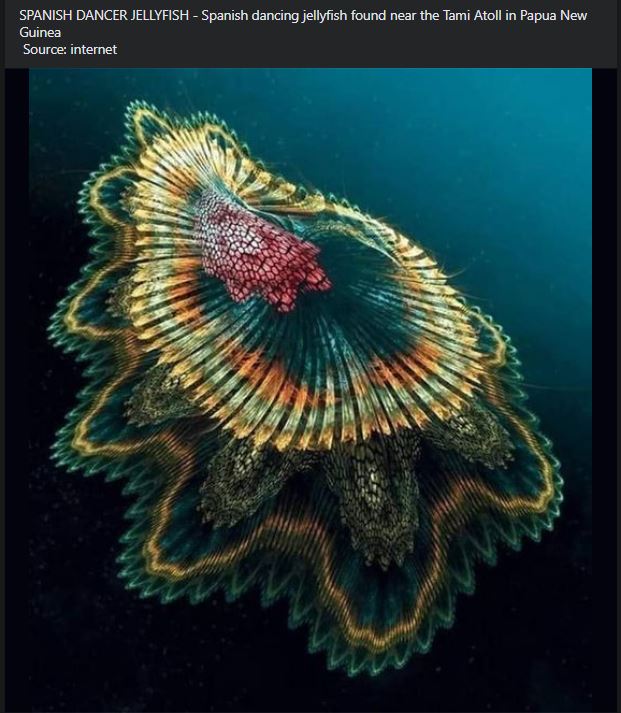FACT CHECK: Does This Image Show A ‘Spanish Dancer Jellyfish’?
An image shared on Facebook over 170 times allegedly shows a “Spanish dancing jellyfish found near the Tami Atoll in Papua New Guinea.”

Facebook/Screenshot
Verdict: False
The image was created using computer software. It does not show a real species of jellyfish.
Fact Check:
The image shows an amorphous shape made of rings of red, green, yellow and orange that appears to be drifting through a body of water. “SPANISH DANCER JELLYFISH – Spanish dancing jellyfish found near the Tami Atoll in Papua New Guinea,” reads the image’s caption.
While there are, according to the Marine Biological Association, more than 200 different species of jellyfish, Check Your Fact didn’t find any species closely resembling the supposedly pictured “Spanish Dancer” in various jellyfish identification guides. There is a sea creature called the Spanish Dancer, but it is a sea slug rather than a jellyfish, according to National Geographic.
“The image does not appear to show anatomical features of an authentic medusazoan (jellyfish),” Angel Yanagihara, an associate researcher at the Pacific Biosciences Research Center of the University of Hawaii, said in an email to Check Your Fact. (RELATED: Does This Image Show A Real ‘Hairy Frog’ Found In Cameroon?)
A reverse image search revealed the image is actually a digital creation. The piece was first shared in August 2012 on the blog of French photographer and digital artist Francis Le Guen along with other images that, according to the blog, came “straight out of the Apophysis software.” It can also be found on the online art gallery Deviant Art, where Le Guen posted it with a caption that indicates it was created using “Apophysis7x.”
Le Guen confirmed in an email to Check Your Fact that he created the piece of digital fractal artwork.
